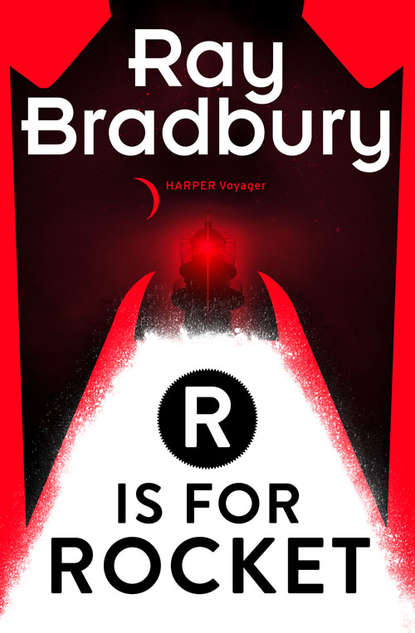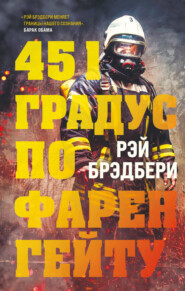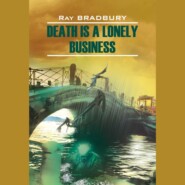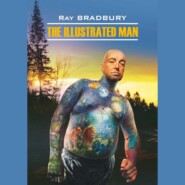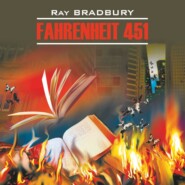По всем вопросам обращайтесь на: info@litportal.ru
(©) 2003-2024.
✖
R is for Rocket
Автор
Год написания книги
2018
Настройки чтения
Размер шрифта
Высота строк
Поля
I couldn’t hear what was said.
But when he set the audio into its cradle, he stared straight at me with the funniest light in his eyes.
It was envy and admiration and pity all in one. It was a little sad and it was much of happiness. It had a lot in it, just in his eyes. The rest of his face said nothing.
It made me feel like a saint and a devil sitting there.
Ralph Priory and I slid home from formula-school together early that afternoon. I told Ralph what had happened and he frowned in the dark way he always frowns.
I began to worry. And between the two of us we doubled and tripled the worry.
“You don’t think you’ll be sent away, do you, Chris?”
Our monorail car hissed. We stopped at our station. We got out. We walked slow. “I don’t know,” I said.
“That would be plain dirty,” said Ralph.
“Maybe I need a good psychiatric laundering, Ralph. I can’t go on flubbing my studies this way.”
We stopped outside my house and looked at the sky for a long moment. Ralph said something funny.
“The stars aren’t out in the daytime, but we can see ’em, can’t we, Chris?”
“Yeah,” I said. “Darn rights.”
“We’ll stick it together, huh, Chris? Blast them, they can’t take you away now. We’re pals. It wouldn’t be fair.”
I didn’t say anything because there was no room in my throat for anything but a hectagonal lump.
“What’s the matter with your eyes?” asked Priory.
“Aw, I looked at the sun too long. Come on inside, Ralph.”
We yelled under the shower spray in the bath-cubicle, but our yells weren’t especially convincing, even when we turned on the ice-water.
While we were standing in the warm-air dryer, I did a lot of thinking. Literature, I figured, was full of people who fought battles against hard, razor-edged opponents. They pitted brain and muscle against obstacles until they won out or were themselves defeated. But here I was with hardly a sign of any outward conflict. It was all running around in spiked boots inside my head, making cuts and bruises where no one could see them except me and a psychologist. But it was just as bad.
“Ralph,” I said, as we dressed, “I got a war on.”
“All by yourself?” he asked.
“I can’t include you,” I said. “Because this is personal. How many times has my mother said, ‘Don’t eat so much, Chris, your eyes are bigger than your stomach?’”
“A million times.”
“Two million. Well, paraphrase it, Ralph. Change it to ‘Don’t see so much, Chris, your mind is too big for your body.’ I got a war on between a mind that wants things my body can’t give it.”
Priory nodded quietly. “I see what you mean about its being a personal war. In that case, Christopher, I’m at war, too.”
“I knew you were,” I said. “Somehow I think the other kids’ll grow out of it. But I don’t think we will, Ralph. I think we’ll keep waiting.”
We sat down in the middle of the sunlit upper deck of the house, and started checking over some homework on our formula-pads. Priory couldn’t get his. Neither could I. Priory put into words the very thing I didn’t dare say out loud.
“Chris, the Astronaut Board selects. You can’t apply for it. You wait.”
“I know.”
“You wait from the time you’re old enough to turn cold in the stomach when you see a Moon rocket, until all the years go by, and every month that passes you hope that one morning a blue Astronaut helicopter will come down out of the sky, land on your lawn, and that a neat-looking engineer will ease out, walk up the rampway briskly, and touch the bell.
“You keep waiting for that helicopter until you’re twenty-one. And then, on the last day of your twentieth year you drink and laugh a lot and say what the heck, you didn’t really care about it, anyway.”
We both just sat there, deep in the middle of his words. We both just sat there. Then:
“I don’t want that disappointment, Chris. I’m fifteen, just like you. But if I reach my twenty-first year without an Astronaut ringing the bell where I live at the ortho-station, I—”
“I know,” I said. “I know. I’ve talked to men who’ve waited, all for nothing. And if it happens that way to us, Ralph, well—we’ll get good and drunk together and then go out and take jobs loading cargo on a Europe-bound freighter.”
Ralph stiffened and his face went pale. “Loading cargo.”
There was a soft, quick step on the ramp and my mother was there. I smiled. “Hi, lady!”
“Hello. Hello, Ralph.”
“Hello, Jhene.”
She didn’t look much older than twenty-five, in spite of having birthed and raised me and worked at the Government Statistics House. She was light and graceful and smiled a lot, and I could see how father must have loved her very much when he was alive. One parent is better than none. Poor Priory, now, raised in one of those orthopedical stations.…
Jhene walked over and put her hand on Ralph’s face. “You look ill,” she said. “What’s wrong?”
Ralph managed a fairly good smile. “Nothing—at all.”
Jhene didn’t need prompting. She said, “You can stay here tonight, Priory. We want you. Don’t we, Chris?”
“Heck, yes.”
“I should get back to the station,” said Ralph, rather feebly, I observed. “But since you asked and Chris here needs help on his semantics for tomorrow, I’ll stick and help him.”
“Very generous,” I observed.
“First, though, I’ve a few errands. I’ll take the ‘rail and be back in an hour, people.”
When Ralph was gone my mother looked at me intently, then brushed my hair back with a nice little move of her fingers.
“Something’s happening, Chris.”
My heart stopped talking because it didn’t want to talk any more for a while. It waited.
I opened my mouth, but Jhene went on:





